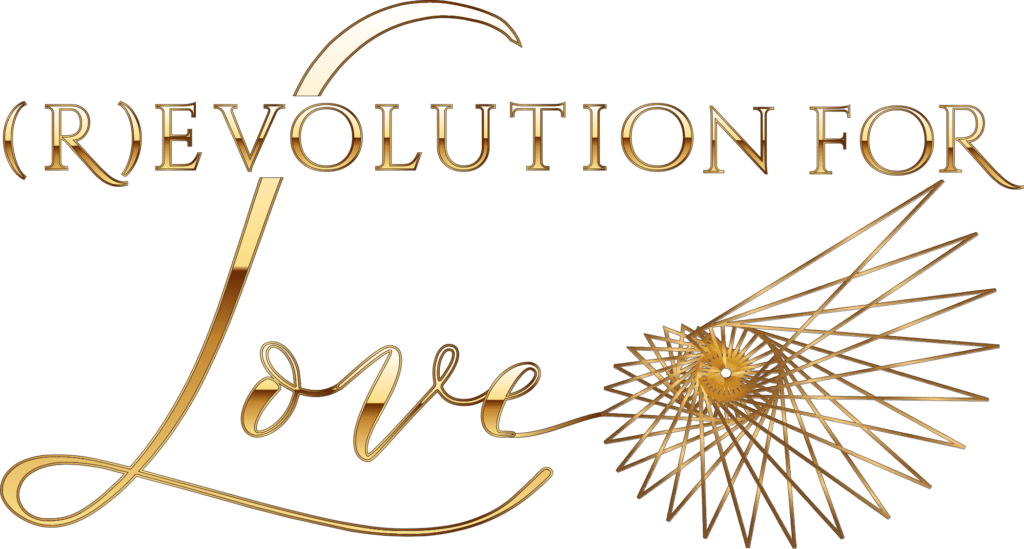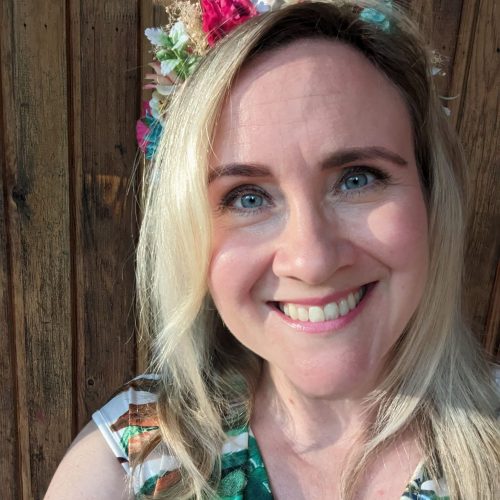The most important thing in a relationship is love, naturally! Or maybe trust? Or sex. Intimacy, surely! A good relationship must have at least shared interests, passion and humour. Says who?
This blog posts concentrates on what is important in a relationship and what the non-negotiables in a relationship are. Can you assume that a happy relationship always involves sex or listening to each other’s worries? I will also introduce a tool you can use to get what you want and need in a relationship.
Have you ever wondered:
- What is forbidden in a relationship?
- What can you expect from the relationship
- How about your partner?
- Is it acceptable to flirt with someone when you are in a relationship?
- Does a relationship have to involve sex?
- Do you have to tell your partner everything?
- Do I have to listen to my partner’s worries?
If your answer to any of these questions is yes, keep reading.
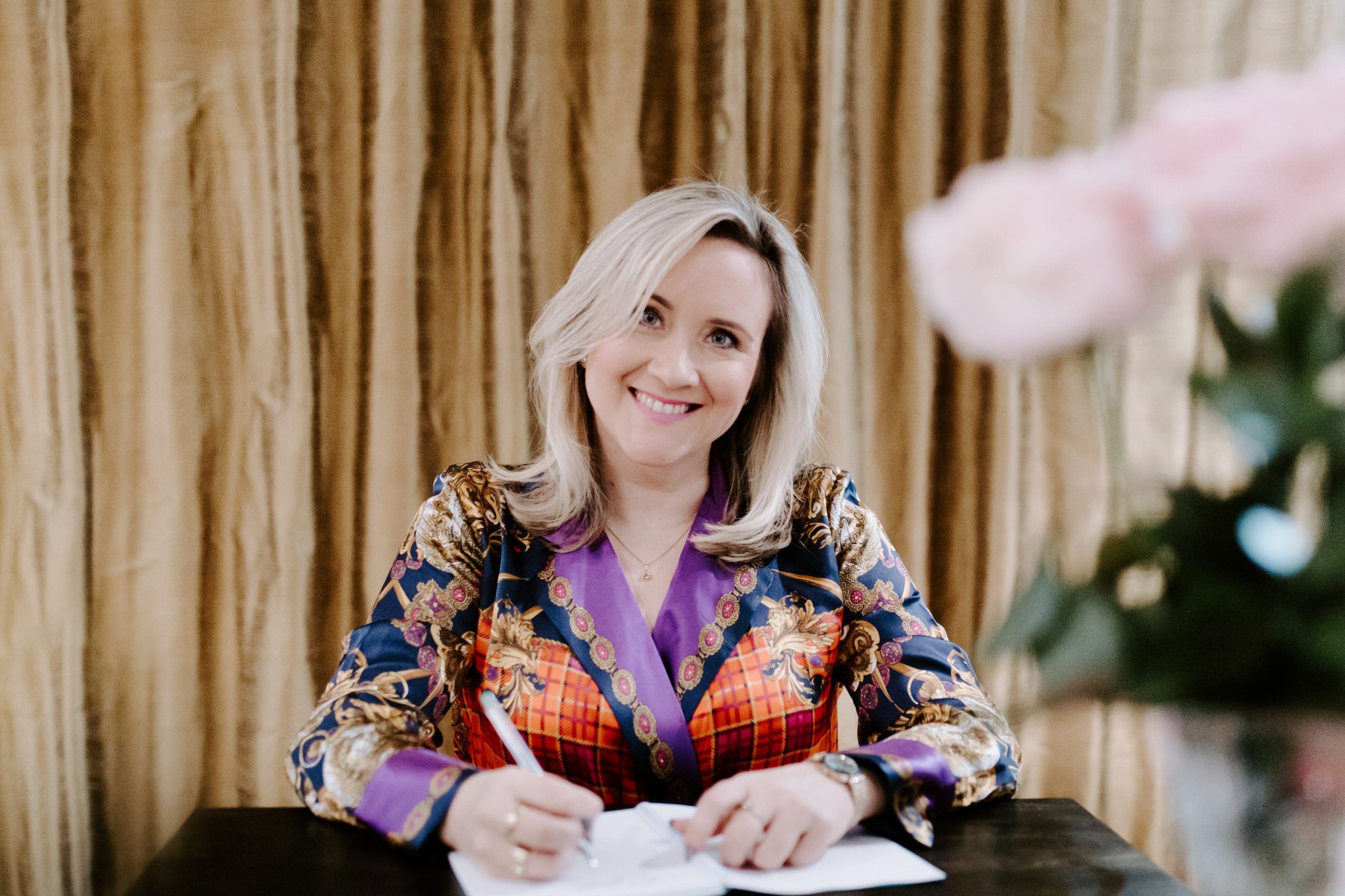
Online Coaching
Happy to help you! Welcome to book your online coaching session with the certified Coach, NLP Trainer, and Clinical Hypnotherapist Kati Niemi! Please select your
What do you agree to in a relationship just because "that's what couples do"?
We have learnt to assume that a relationship involves certain things. This leads to feelings of disappointment or anger as the things we find important are not a priority in your relationship.
Have you ever thought about what the most important thing for you is in a relationship and is that need fulfilled in your current relationship?
Have you agreed to have sex with you partner because that’s what couples do although you didn’t really want to?
”The very thought of having sex with my partner gave me the creeps. But I did, out of pity, because I thought I was being unfair. I did occasionally consider literally setting a timer and telling them to hurry up. And of course, I did all the right things to get out of the situation as quickly as possible. But I slowly began to wonder why on earth was I doing this. I decided he should look for satisfaction elsewhere.”
An extract from (R)evolution for Love - A Better Relationship or a Brilliant Divorce
Of have you practically forced your partner to come to a family gathering or pose for pictures on social media with you?
"My lover said their spouse forced them to post couple pictures on social media."
An extract from (R)evolution for Love - A Better Relationship or a Brilliant Divorce
What is a relationship?
The traditional, dictionary definition of a relationship is one based on affection and sexuality.
Another common assumption is that a relationship is romantically and sexually exclusive. This means that the partners don’t engage in romantic or sexual relationships with people other than their partner. The basic assumption is that a relationship is monogamous. Another basic assumption is that a relationship is a heterosexual relationship.

IMPROVING YOUR RELATIONSHIP: Tips for a better relationship
10 tips for improving your relationship – Here’s how to make an already good relationship permanently better
We associate being in a relationship with things like love, friendship, physical intimacy, emotional support, looking after each other, shared finances (and in most cases home) and shared activities such as walks and going to family occasions together.
“Otherwise we would have no sex at all”
Have you ever had sex even if reluctantly because it is “part of being in a relationship”? Or because you don’t want to hurt your partner’s feelings?
We often equate sex with a good relationship – no sex = no good relationship. According to studies, women, in particular, tend to agree to having sex even when don’t feel like it. The common assumption that a good relationship must always involve sex is incredibly strong. Never mind the gendered ideas that the woman “gives” and the man “takes”.
If you have sex with your partner they won’t cheat on you
Where do all these assumptions come from?
The assumptions of what a relationship should be like arise from social norms. Norms are unwritten rules shared by a certain group of people. The assumptions are also upheld by beliefs. Beliefs are things we believe in but are not necessarily true.
Norms say what is normal. They dictate which practices are and aren’t acceptable. Beliefs sustain norms. A typical social norm governing relationships is the predetermined script they follow. It starts with the initial interest in one another and progresses through falling in love, moving in together, getting engaged, getting married, having children. We have also deeply internalised the idea that a relationship takes (hard) work to succeed.

INFIDELITY and the collected excuses: The good reasons for cheating
CHEATING: What is a good reason to cheat? What do the cheated partner, “the other woman/man” or the cheater choose to believe in?
Other typical beliefs are that your partner will not cheat if you have sex with them or that the most important thing in a relationship is have (enough) sex.
But are time/sex/intimacy/children truly the most important things about a relationship or have I just learnt to think that way?
We adopt all kinds of beliefs from our environment starting in infancy. These beliefs can be positive and negative. The seeds of our beliefs about relationships were sowed early on, as we observed the relationship between our parents. With age, we grew more influenced by our peer group’s reactions to our behaviour. In adulthood, we still compare our actions against the norms of our reference group.
If your circle of friends unanimously feels that getting married is important, you, too, are more likely to get married. It is a basic human need to feel accepted, regardless of age.
In addition people close to us influencing our behaviour, we also seek confirmation from our general environment to our own beliefs. We see and hear what we want to see and hear. This is why changing beliefs is sometimes incredibly difficult. After all, everything around you points to them being true.
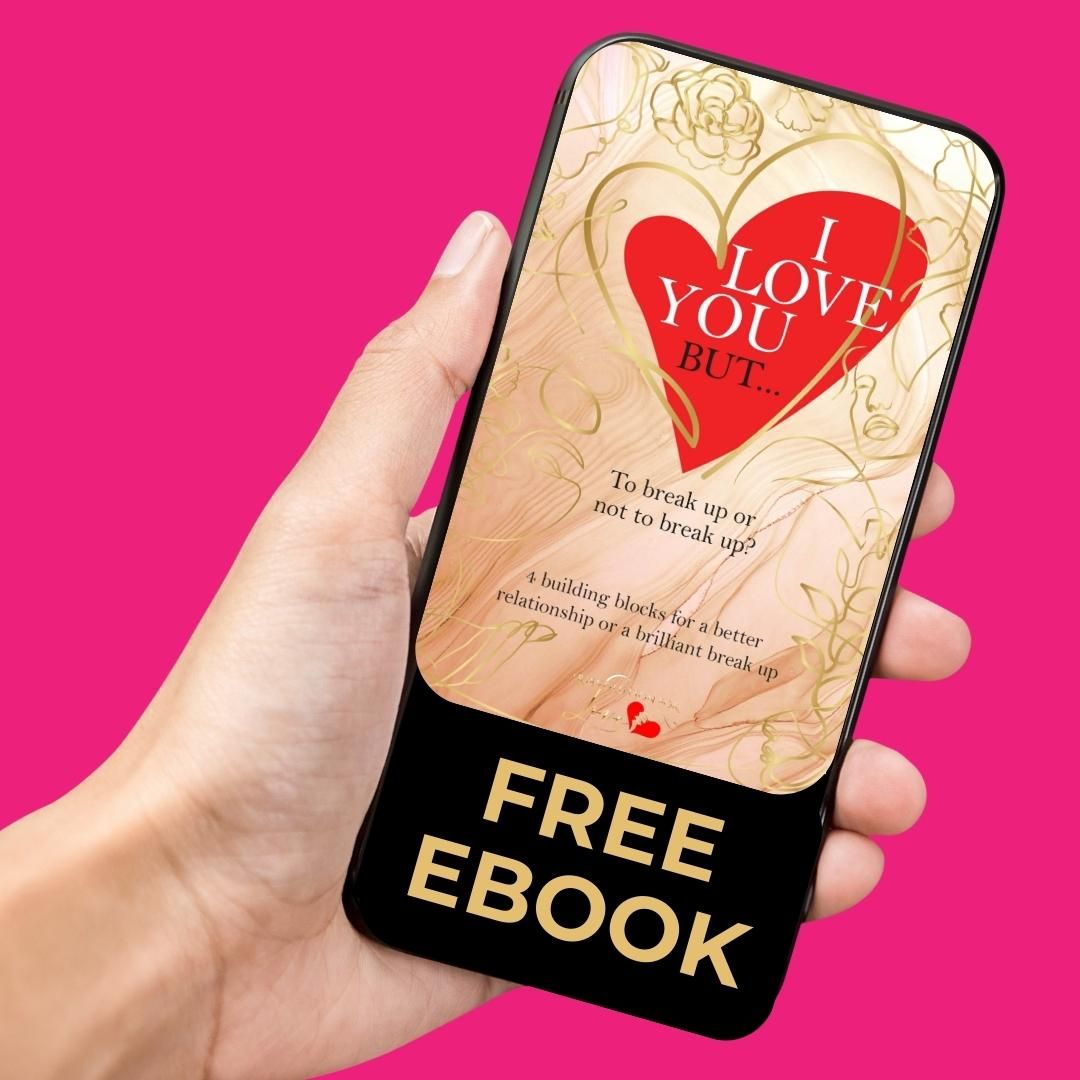
FREE EBOOK ‘I love you but…’ – To Break Up or Not to Break Up?
Refocus your energy now to improve your love life! This FREE ebook ‘I love you but…’ will help you move towards a better relationship or
And yet you might not be quite content with your life or your relationship. If that is the case, take a hard look at the beliefs you have adopted and question their truth value.
What exactly did you sign up for?
How many times have you actually discussed the conditions and the content of your relationship before you start dating someone? Or get married (apart from the obvious legal issues)? And how often do you revisit and renegotiate this agreement? To be honest, I’ve never had a conversation like that in my life until my current relationship.
Of course, a couple doesn’t necessarily have to negotiate anything, if everything is naturally falling into place and both parties get what is most important to them in a relationship. However, if you are suffering in your relationship, waiting for you partner to deliver something that they can’t give you and this causes disappointment and conflicts, this type of conversation would be important to have.
Assumptions do not harm those whose lives they don’t restrict
Norms seldom need justification. They are based on a shared understanding of how we should conduct ourselves. They are what they are. And many people are happy living within the boundaries of norms and have no need to question them. But if you don’t fit the norm, you may be in trouble. How many times does a gay man have to answer to questions about their girlfriend. How often is a woman expecting a child together with their same-sex partner asked about the child’s father.
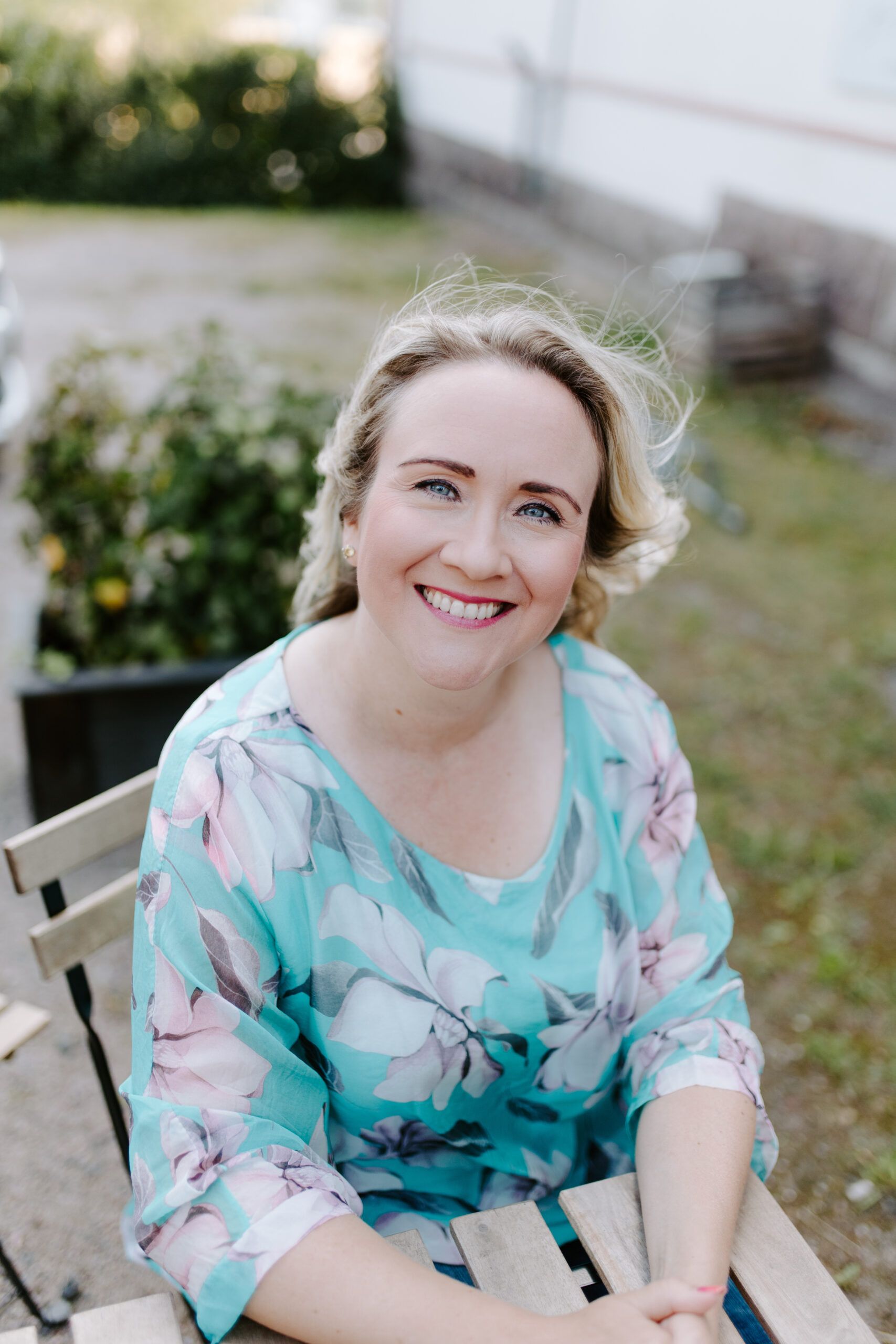
How to improve your relationship in seconds?
If you think there are no quick and easy ways to improve your relationship, think again. Find out how to improve your relationship in seconds.
Relationship norms reveal what the majority values in relationships
Norms stem from values. The shared understanding of the direction in which society should develop and what is valuable for society. This understanding creates those unwritten rules on what are normal and acceptable ways of life, behaviours and ideologies.
Relationship norms reflect the ideas of what is important in life. For certain reasons, our society values close relationships, having a family, a fixed abode and stable finances. Values vary from one culture to the next, and so do norms. Travelling abroad and making mistakes in a social situation is a simple but painful example of this :=) Those who have been in a relationship with a person from a different cultural background have also felt it. They have found themselves in a situation more than once, in which they have to tried but failed to explain some custom: “That’s just what we do,” will have to suffice in the absence of a better explanation.
What if you don’t get from your relationship what you need most?
Many of our beliefs have no grounding in facts.
I always thought I can’t sing, but apparently this isn’t true. I might not be the next singer-songwriter everyone is talking about but I can hold a tune. So why did I think I can’t sing. Because my mother thought so and probably her own mother did as well. “We are not a musical family” was a family narrative that survived surprisingly long.
Do you feel that things that are important to you are not happening in your relationship but something is stopping you to even contemplate change. If so, I encourage you to take a look at your beliefs about what a good relationship is like. Do you assume that you want certain things? Are you sure those things are really important to you? Or do you think your relationship is not good enough – even if you are quite happy – because it doesn’t meet the criteria of society for a good relationship.

Long-Term Relationship Tips – How to Relight The Spark!
How to get the spark back in a long-term relationship? How to reignite the flames between you? Good tips to refuel the fire with the spouse!
Look around you? What kind of normative assumptions can you recognise? What does your closest circle consider normal or abnormal? How do they talk about people or couples who are “different”? Do you actually think that way, too? Or are those thoughts just beliefs and normative assumptions that you mirror?
“It’s really important to me that the entire extended family celebrates Christmas together”. Are you sure it wasn’t Granma who is no longer with us to whom it was important, not you!
But back to singing. I don’t know why it was the going narrative in my family that we can’t sing. I guess some relative of mine who couldn’t sing once went and sang publicly. Maybe they were ridiculed for that or they just otherwise failed in life. Or maybe one of the family members once had the audacity to try and become a singer but sadly did not succeed. Perhaps the whole family then quietly decided that our family is not musical. End of story.
Beliefs always serve a purpose. Beliefs protect us against unpleasant and harmful experiences.
Norms are necessary up to a point. Imagine if we had to negotiate every situation as if it were the first. If we would be wonder at every turn if we should shake hands, or kiss the person we meet on the cheek.

How do attachment styles affect adult relationships?
What is an attachment style? How the attachment style you have developed affects your relationships as an adult.
But when norms and beliefs restrict your life, existence and wellbeing as your true self, it is important to examine the role of those beliefs in your life.
What was considered important in a relationship hundreds of years ago is no longer necessarily valid.
Why do you think that a good relationship must involve sex?
And what would happen if we collectively stopped believing this?
I’d love to hear what you think! Feel free to comment below!
Do you know what is important to you in your relationship?
Now that I have talked about beliefs on a general level, you must be thinking what to you personally is important in a relationship. How is your relationship doing? And what should you and your partner be able to expect from each other? What characteristics at least should your partner have?
I mentioned earlier that I would introduce a tool to help you get what you want and need in a relationship. All those things that are the most important to you. I’ll be talking about it in the following.
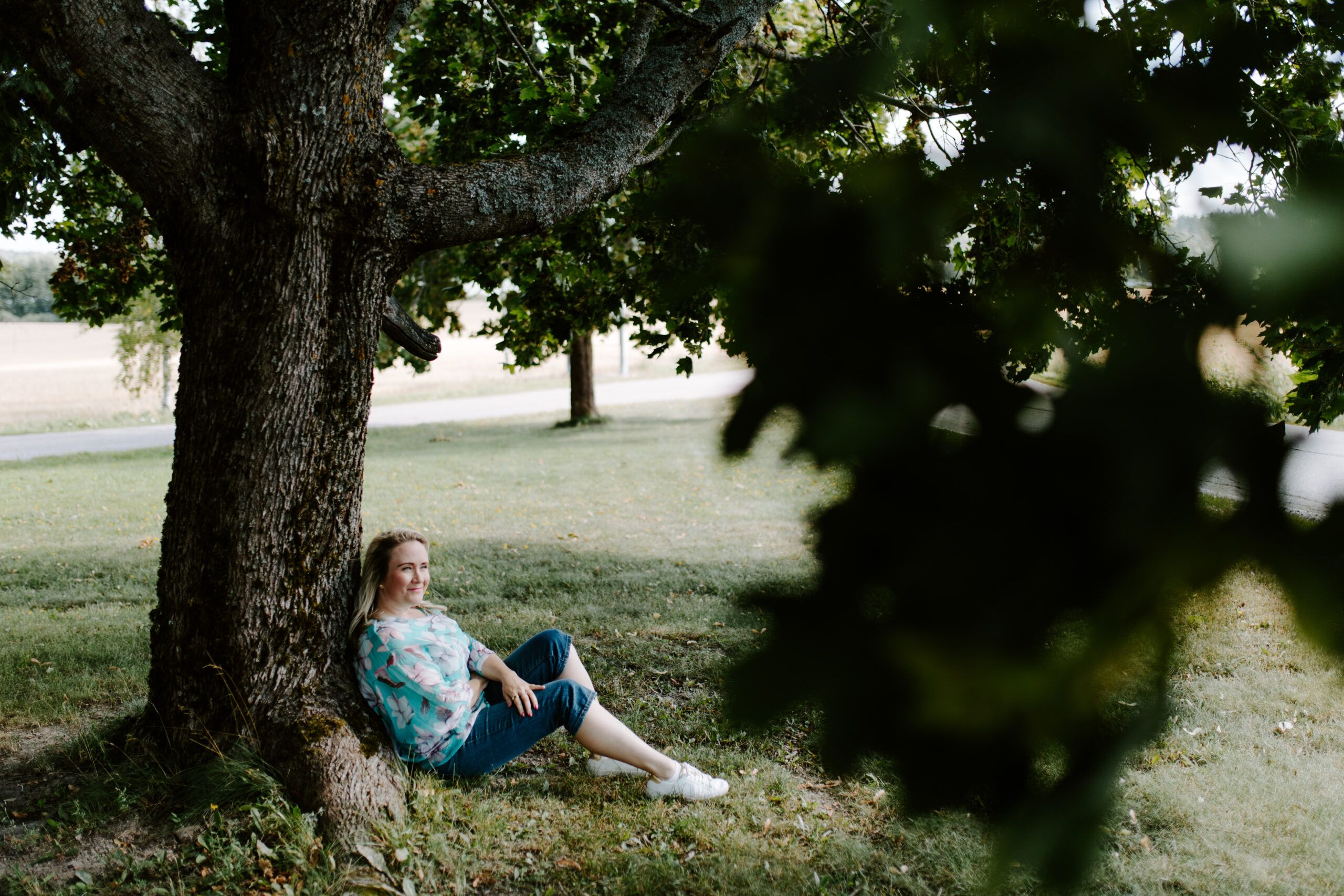
Are relationship problems simply just stress and lack of sleep?
Why does stress and lack of sleep cause problems in a relationship? Or do bad relationships cause stress and sleeplessness? How to get help?
It is a shame that an otherwise good and satisfying relationship ends just because the partner is unable to meet some of their partner’s needs. It is an equally big shame is a person settled for relationships that do not promote their wellbeing or happiness.
So how to get what you want in a relationship?
In short: by asking for it. But we all know that things are not that simple. It is not easy to talk about your needs, wants and hopes. Especially if you are not used to doing so. Infants know how to ask for things – loudly if necessary. But if experience then taught us that our needs were irrelevant, or even wrong or ridiculous, we started to believe so ourselves. Surprisingly, age and experience actually often make it more, not less difficult to recognise your needs and wants and to clearly name and communicate them.
We might be nervous that others think our needs are ridiculous, strange or somehow wrong. What if people dismiss and invalidate my needs? We often believe that we are alone with our desires, especially if certain topics are not usually openly talked about. Again, the human need to be accepted and to avoid rejection comes into play. We try to guess what type of needs and wants are safe to say out loud.
Cheating may be easier than saying what you want
It is easy to see how cheating or drifting into extramarital affairs may seem easier than openly talking about your relationship and hopes and dreams with your partner. Another reason why talking about your feelings is difficult is that you don’t actually know what you feel. You may be only used to figuring out what others want. Or your needs and wants are in conflict with your beliefs and social norms.

Great sex while single from Tinder and other dating apps!
The gallery of people on Tinder is as varied as people in general. Happily, every single person can find good sex from Tinder or elsewhere.
Openly talking about your wants and hopes and needs is a skill that everyone should learn. It will free your relationship from the weight external assumptions and reduces the disappointments and conflicts that they cause. This type of conversation seldom takes place in a traditional (monogamous, exclusive) relationship until the boundaries of either partner have been violated or does not get what they need from the relationship.
We are also used to people not really saying what they think and feel. Instead, we have to decipher what they really mean. A good example of this is the early days of dating: Text messages are interpreted word by word, with futile efforts to infer the real intentions between the lines. Our detective work is based on our personal concept of love, dating, relationships, men, women etc. as well as generally held beliefs around these issues.
Speaking directly about these topics may simply be too strange. Happily, that is a skill that can be practiced!
But let’s get to the point: the tool for possibly the most important conversation for your relationship.

How to Make Your Long Distance Relationship Work?
Having a problematic long distance relationship? How to make a long distance relationship work during lockdown?
Does a relationship have to have sex? Or intimacy?
People could avoid many of their relationship problems if only they discussed more openly about their expectations in advance. An excellent tool for facilitating this conversation is the concept created by Andie Nordgren and widely endorsed by relationship anarchists: the Relationship Smörgåsbord.
The idea of the concept is that before embarking on a relationship the parties choose by themselves the elements that they wish the relationship to involve. After this, the elements are compared to see which ones the parties share and which ones they don’t, and which ones are negotiable. Shared elements form the substance of the relationship.
This way nobody goes into the relationship assuming that the relationship will offer something that was not discussed beforehand. So no sex, no intimacy, no family gatherings or social media poses together – unless specifically agreed. The selected elements are not cast in stone. The elements of the relationship and one’s needs and desires should be regularly revisited and updated through mutual agreement and discussion. This will ensure that the relationship does not get stuck in the rut because of old assumptions. Instead it will grow and change with the partners and the channels of communication stay open.

Narcissism in a Relationship: “How to Know if My Partner Is a Narcissist?”
What are the signs and causes of narcissism? Can you make a relationship with a narcissist work? Can you heal a narcissistic partner?
Ideally, this conversation is held before starting a relationship, but it can naturally be had at any point. A couple can always agree that from this day on, the substance of this relationship is “xyz”, until further notice.
What would you choose as the elements of your relationship?
Are sharing your thoughts, your goals or your activities a priority for you? Contrary to common expectations, people’s priorities in a relationship vary. And you are free to include or exclude any elements you like from your relationship. The point of the smorgasbord exercise is to create a “menu” on which all parties agreed.
Working on a ready-made model such as this makes having that conversation much easier. The items I have listed below are borrowed from a Relationship Smörgåsbord model available on Reddit.
- Romantic: chemical reaction, feelings of love
- Physical love: sex, body contact, dance, cuddles, hand holding, massage
- Emotional intimacy: sharing, being vulnerable
- “Kinks”: BDSM, fetishes, exhibitionism
- Friendship: companionship, playfulness, shared interests/activities
- Life partner: shared long-term/lifelong goals, embracing change in each other
- Emotional support: listening, being asked for advice, confidant
- Power Dynamic: boss/employee, teacher/student, D/s, M/s etc.
- Domestic: sharing a dwelling/home
- Caregiver: giving and receiving care
- Social partners: being seen together (events, friends, family, work, social media)
- Collaborative partners: teaching, projects, art, organisation etc.
- Sexuality: genital sex, anal sex, orgasms
- Co-caregivers: children, pets, family members etc.
- Financial: Sharing money, accounts, payments, property
- Business partners: financial/social collaboration
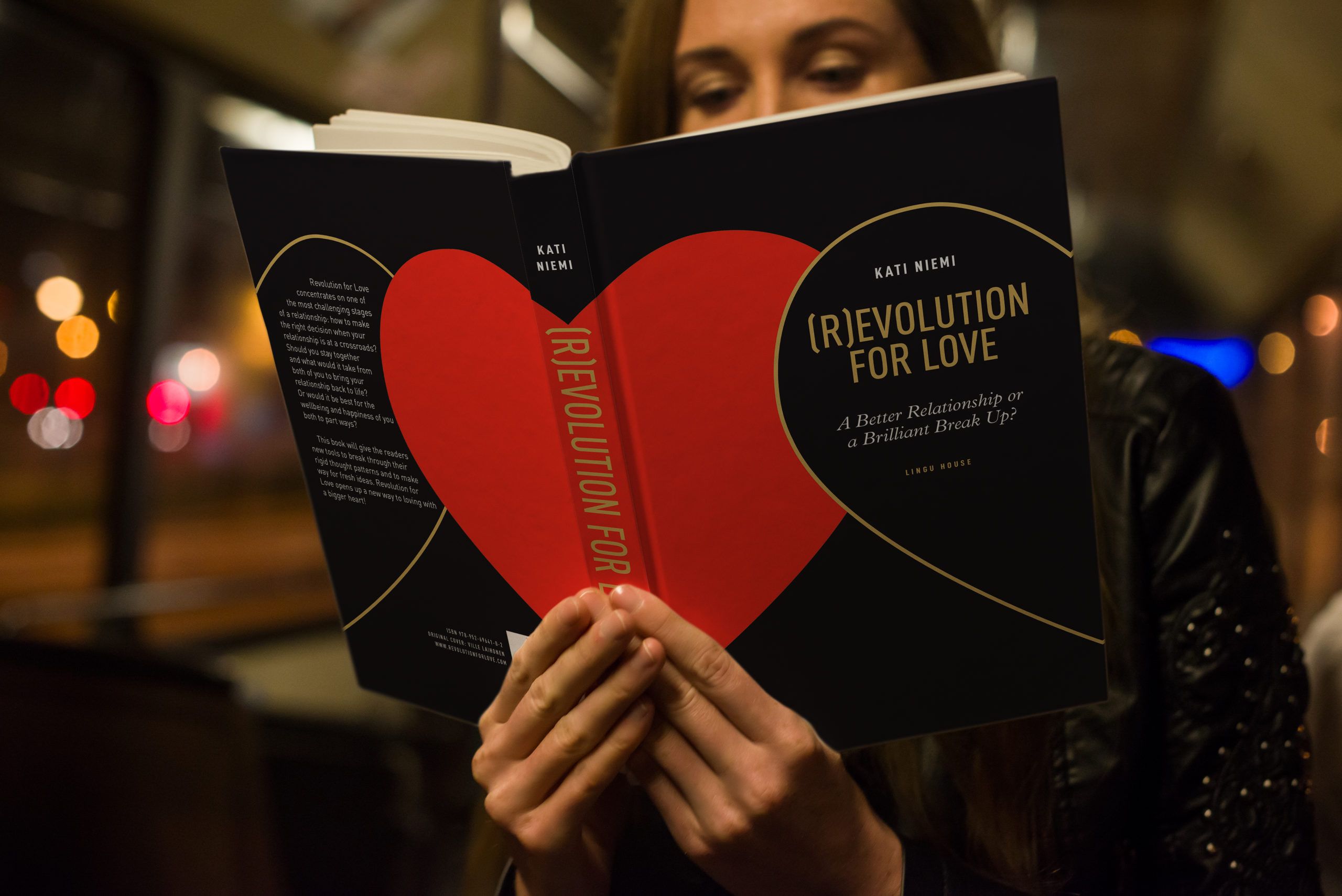
(R)evolution for Love – The Book
* I have selected every editorial product for your benefit. Sometimes you may get some discounts and I may receive a share from purchases made
How often have had a conversation about the above aspects before starting a relationship?
Or during a relationship?
Could you have this conversation today?
So, what is important for you in a relationship?
People often try to define what is and isn’t allowed in a relationship. The truth is that there is no rule book. Fortunately! The rules of a relationship, any relationship, are determined by the people involved in it.
You can’t force your partner to share all their feelings or to hold your hand in public or accompany you to family gatherings unless you have explicitly agreed so. The only demand you can make about sex is the demand of consent. Nobody has to have sex under any circumstances unless they want to.
This blog posts concentrated on what we consider important in a relationship and what the must-have elements in a relationship are. As a rule, everyone needs to be seen, heard and loves. How these needs are met in a relationship is up to the people involved to agree on in mutual understanding.
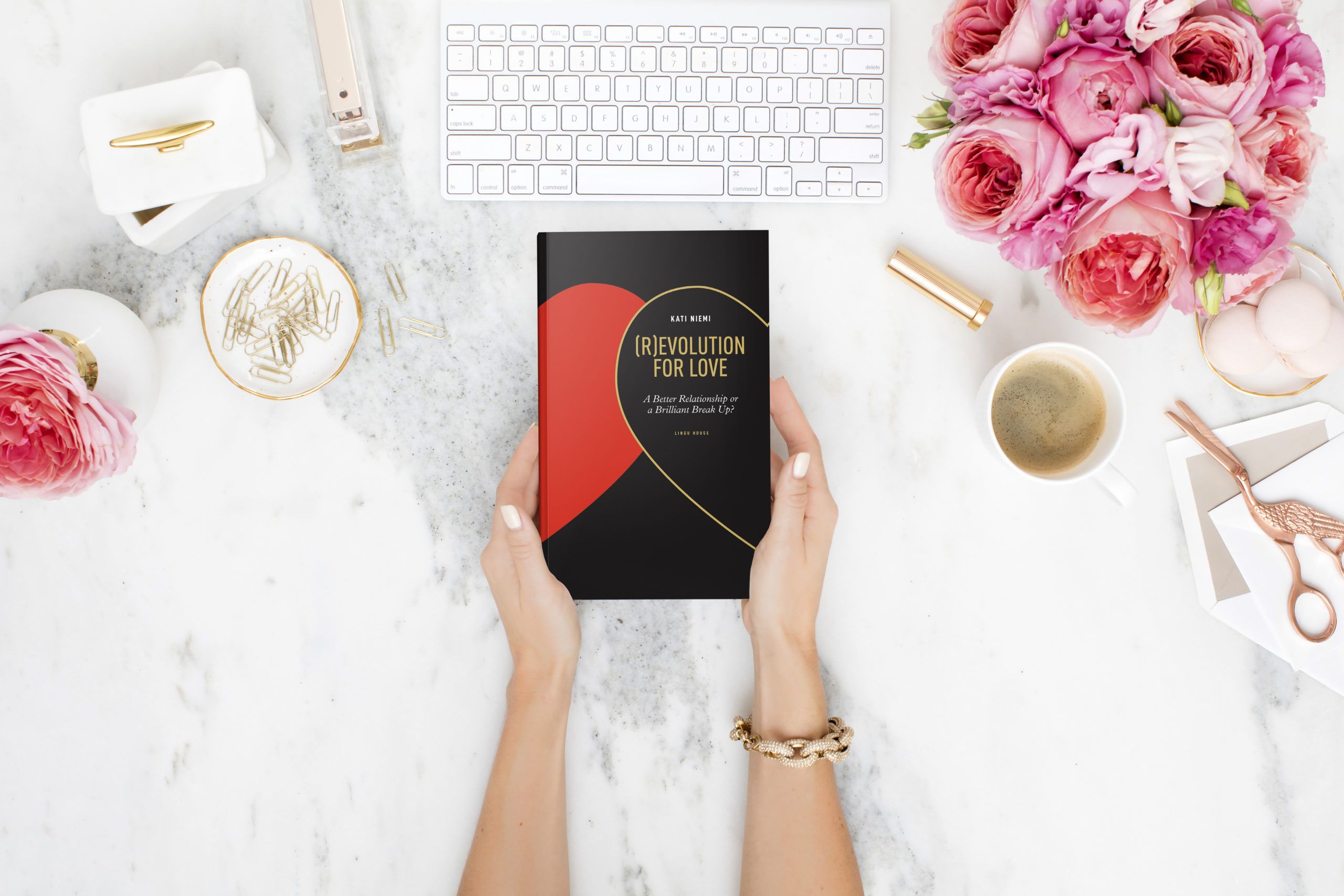
“FIVE STARS!” Book reviews: (R)evolution for Love (Amazon Books)
“Five Stars!” Editorial reviews and reader reviews of (R)evolution for Love – A Better Relationship or a Brilliant Break Up? Amazon books
There is no reason why a relationship should be the only context where these needs can be met.
If one person has to be able meet more or less all the needs of another person, no wonder is we feel stressed by relationships. The dictionary definition of what a relationship means needs to be updated. The definition by which it is a relationship between two people based on affection and sexuality is too narrow.
And the dictionary is not the best authority in love, anyway! Your best source of information is looking right at you in the mirror

Motivating You to mindshifting in many ways,
Your Coach Kati Niemi
Clinical Hypnotherapist, NLP Trainer, M.Sc.
[email protected]

INFIDELITY and the collected excuses: The good reasons for cheating
CHEATING: What is a good reason to cheat? What do the cheated partner, “the other woman/man” or the cheater choose to believe in?

What is an open relationship? Does it lead to breaking up?
What is an open relationship? Who are non-monogamous open relationships for? Is your partner suggesting consensual non-monogamy?

Narcissism in a Relationship: “How to Know if My Partner Is a Narcissist?”
What are the signs and causes of narcissism? Can you make a relationship with a narcissist work? Can you heal a narcissistic partner?

Aromatherapy for Libido & Romance – The Best Essential Oils for Love
Sense of smell influences our sexual desire and performance. Aromatherapy tips and the best essential oils for romance, libido, sex and love.
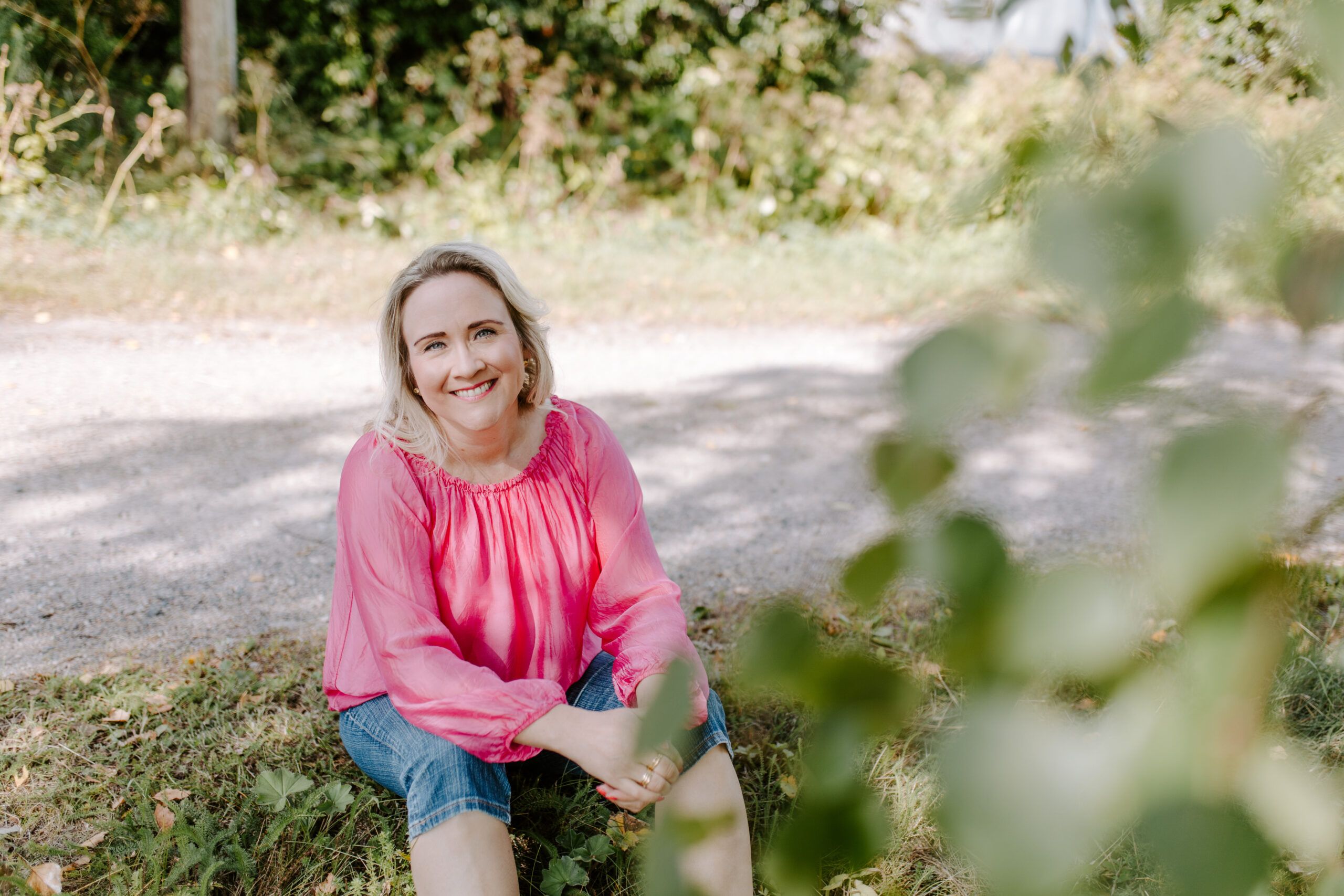
When positive thinking becomes toxic
What is too positive thinking like? Where should we focus the power of our mind and our willpower?
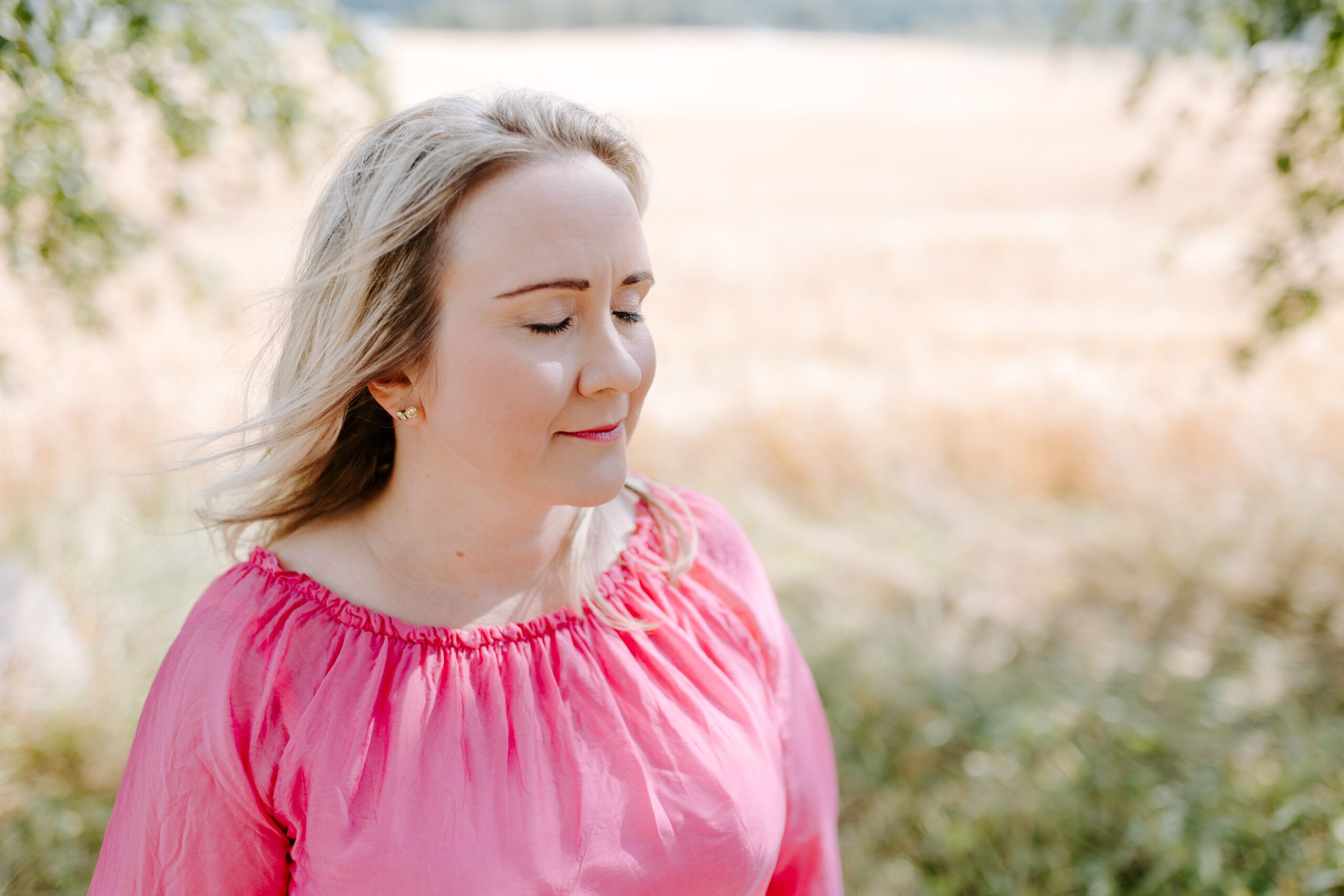
TO BREAK UP OR NOT TO BREAK UP? Should I stay or should I go?
How do you know if you should leave or not. How to make the decision to break up or to improve your relationship? To break up or not?
